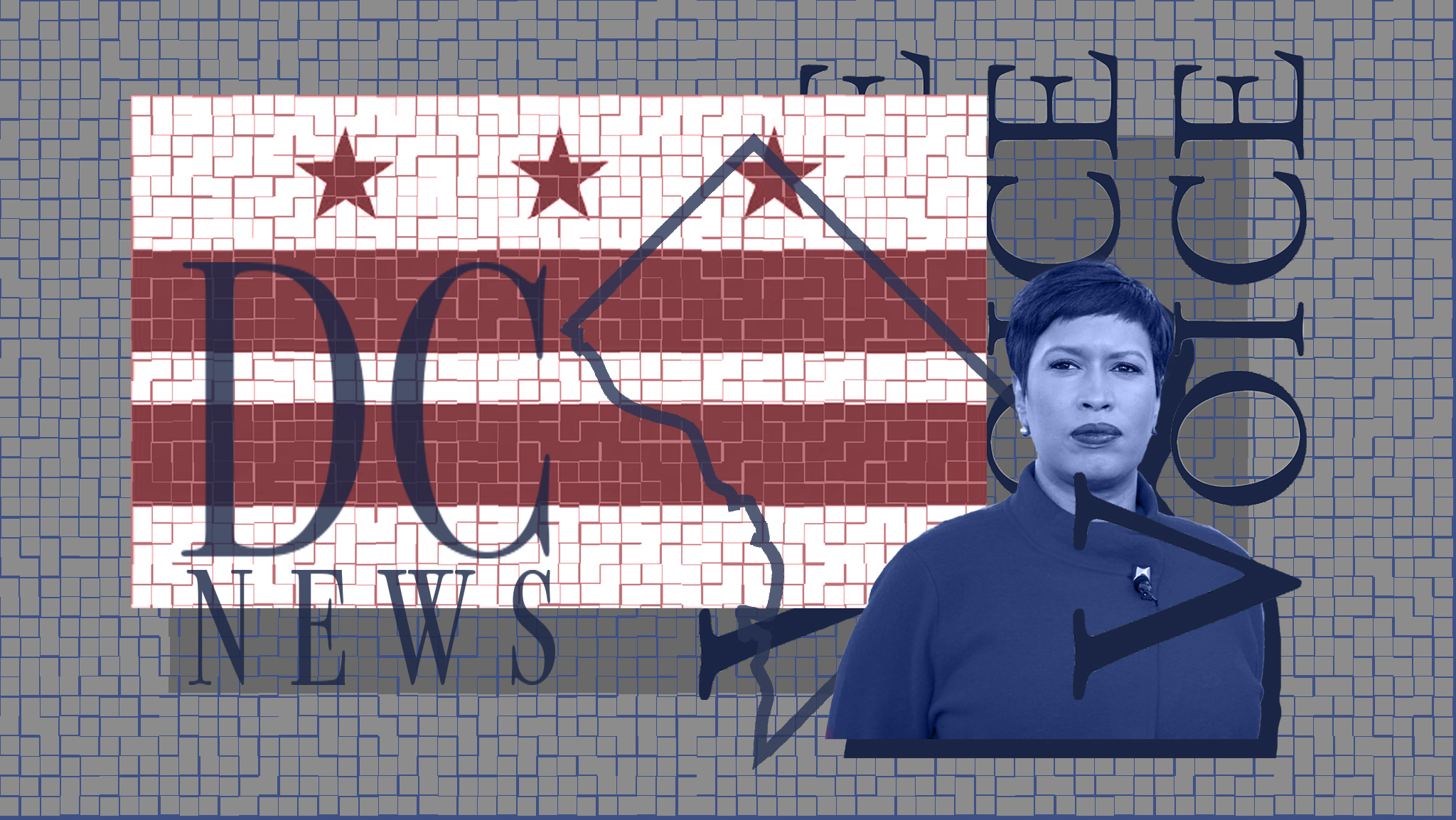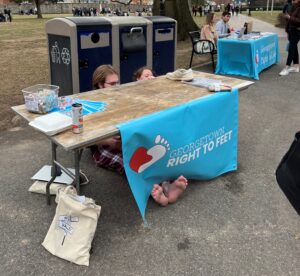The D.C. Council passed a bill requiring District high schools, middle schools, and both public and private post-secondary schools to provide free period products in all women’s and gender-neutral bathrooms, and in at least one women’s and one gender-neutral bathroom in elementary schools. Titled “Expanding Student Access to Period Products Act of 2021,” the bill was reintroduced last year, and passed unanimously at the Council’s first legislative meeting of 2022 on Jan. 4.
Ward 2 Councilmember Brooke Pinto first introduced a version of the bill in 2020, which was revised and expanded in 2021. The text specifies that if there are no gender-neutral bathrooms, schools should provide period products in at least one men’s bathroom. Additionally, it requires the Office of the State Superintendent of Education (OSSE), the District agency tasked with overseeing education in traditional and charter schools, to implement menstrual education standards for all students in public schools and public charter schools beginning in the fourth grade. Schools and the OSSE are required to comply with these changes after one year of the bill’s effective date, projected to be March 2022.
“Many students continue to face obstacles in accessing period products, which is a basic healthcare need for over half of our residents,” Pinto wrote in a document introducing the bill.
The inability to access menstrual products can have long-term negative effects on physical and mental health, as well as educational outcomes. A 2021 report found that almost half of Black and Latinx students feel they are not able to do their best school work because of lack of access to period products, compared to a little over a quarter of white students. By reducing students’ financial barriers to accessing these products, the bill is likely to help students of color attend secondary and post secondary schools, according to the Council Office of Racial Equity (CORE).
“The lack of timely and readily available access to free period products can create a web of negative outcomes that affect mental and physical health; and social and economic wellbeing many of which disproportionately affect women of color and women of color with low incomes,” the CORE impact assessment of the bill reads.
The bill’s health education requirement also aims to address period poverty in D.C. by reducing stigma surrounding menstruation and informing students about their bodies before they reach puberty. In D.C., menstrual education is only required beginning in grade nine, after most menstruating students get their first periods.
“It’s super important that this education happens at an earlier age so that students are adequately prepared,” Chloe Kekedijan (COL ’22), the president of H*yas for Choice, Georgetown’s pro-choice club, said.
H*yas for Choice has been pushing for menstrual equity both on campus and in the DMV area through their campaign, Cura Personalis Period. According to Kekedijan, through research and collaboration with maintenance staff, the campaign has helped make menstrual products available in nearly 85 percent of buildings on campus.
“When I was a freshman, there were some products in some women’s bathrooms but the vast majority of them didn’t have period products,” Kekedijan said. “We’re really proud of the fact that we were able to accomplish that.”
Last semester, H*yas for Choice worked with Planned Parenthood D.C. to gather signatures in favor of the “Expanding Student Access to Period Products Act of 2021.” They also collaborated with Georgetown Mutual Aid for a menstrual cup giveaway program, which allowed students to order a menstrual cup free of charge. This semester, they are planning a menstrual equity drive with the D.C. Prison Collective to donate period products to incarcerated people, who often face extreme period poverty.
Plans are in the works for H*yas for Choice to meet with the administration in the near future to discuss the implementation of the bill. “We want to make sure the administration is fulfilling their obligations, especially the requirements for gender-neutral and men’s bathrooms because that’s something they have been resistant to,” Kekedijan said.
While only a step in addressing period poverty in D.C., the bill has the potential to alleviate the financial, mental, and physical burden many students face because of poor access to menstrual products. Once in place, proponents hope that the bill will help menstruating students to invest their time and energy more fully into their education and general well being, and reduce the harmful effects of period poverty for students.






